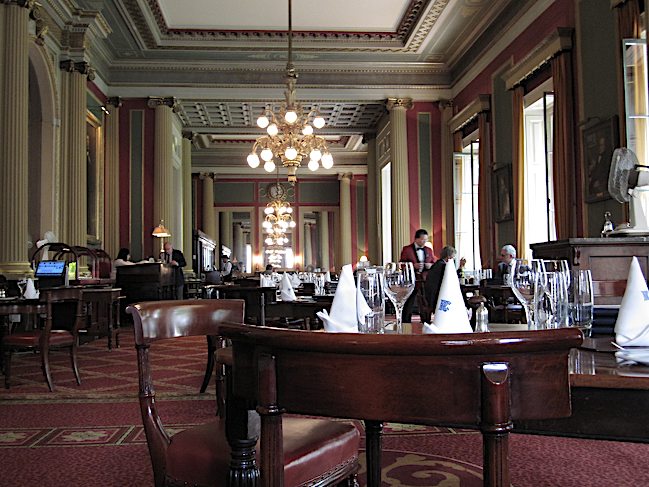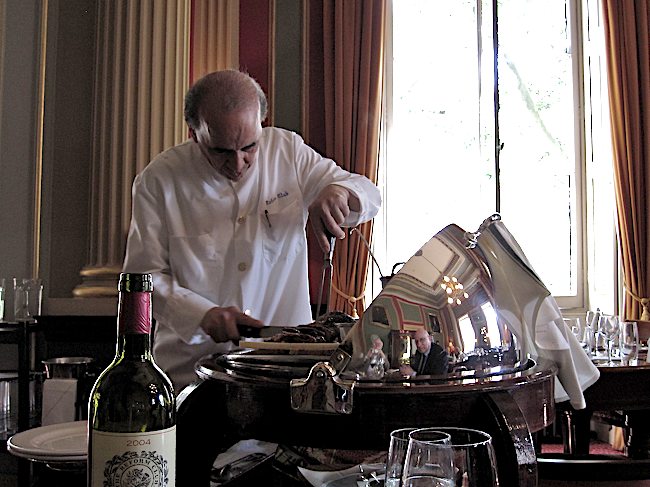On two consecutive days this week I was working in London. On one of them I followed in the footsteps of Phileas Fogg (and indeed of Trollope’s hero Phineas Finn) and lunched at the Reform Club in Pall Mall. I was there as the guest of an historian friend, an American academic who uses the club as his London base when he’s in England. I wore my Garrick tie in the hope that it might annoy the Head Porter, but of course he was alert to the trick and allowed not a flicker of contempt to cloud his features.
The Reform is a palatial building, allegedly modelled on the Farnese Palace in Rome. Unlike many clubs, it has a lovely garden, with large, stately trees under which we sat having a drink before lunch, marvelling at the existence of such a peaceful oasis right in the heart of a major city. But then being an oasis was always part of the ‘gentleman’s club’ ethos. These places were designed as (male) refuges from women and real life. In Miss Potter, the biopic of Beatrix Potter’s life, for example, it’s to the Reform that her (independently wealthy) father repairs every day instead of going to his office.
Somebody told me once that the main qualification for being elected to the club was that one accepted the principles of the 1832 Reform Act — the statute that gave political representation to the cities that had sprung up during the Industrial Revolution and extended the franchise to about one in six adult males. Not exactly a demanding requirement. It was one of the first of the Pall Mall clubs to admit women as members. On my last visit, some years ago, I looked at the ‘new members’ list as I was going in and discovered that Mrs Stella Rimington, then the boss of MI5, had just been elected. When researching a New Statesman profile in 1972, I sought an interview with Lord Balogh, who had been Harold Wilson’s Economic Adviser in the 1960s. Balogh insisted on the interview being conducted in the Reform, but omitted to offer any refreshment.
The Reform is also famous for a recipe — Lamb Cutlets Reform.
We had lamb, needless to say. And as I munched contentedly I remembered a line from P.G. Wodehouse. “To attract attention in the dining room of the Senior Conservative Club between the hours of one and two-thirty”, he wrote in Something Fresh, “you have to be a mutton-chop, not an Earl”.


